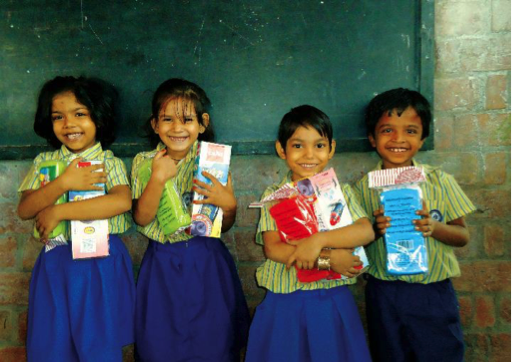
Manual scavenger women in Madhya Pradesh, India, are escaping lives of poverty and discrimination thanks to funding from the Halcrow Foundation.
Manual scavengers remove human excrement from toilets and carry it away to disposal locations, often several kilometres away. The work carries significant health risks for the workers, as well as the social stigma of ‘untouchability’ and discrimination against their families within local communities.
New skills
A project team, supported by Karuna and funded by the Halcrow Foundation, is helping manual scavenger women in Madhya Pradesh move away from this work and learn new skills so that they can support their families and lead dignified, meaningful lives.
Thanks to Halcrow Foundation funds these women are given finance to train in skills such as garment and incense making, and supported while they build up profitable businesses to take care of themselves and their families.
The Halcrow Foundation was given a £5 million legacy from the Halcrow Trust in March 2016, which enabled the Foundation to support projects like this, improving healthcare and education in poor communities.
Strong vision
David Kerr, Chair of the Halcrow Foundation, says: “We have long had a strong vision and track record of finding and funding practical and impactful projects to alleviate poverty across the UK and around the globe. Thanks to this legacy we now have an ambitious new strategy with a supporting business plan that draws heavily on our past experience and the lessons we have learned from over a decade of successful operation.”
So far the Foundation has supported over 150 projects in 27 countries, helping around 50,000 people, and aims to build on this experience to inspire and deliver a movement from the wider engineering community. It is calling on individuals and businesses from the engineering industry to join Halcrow Foundation as partners, helping to contribute technical skills, knowledge, and human and financial resources which can be used to create transformative and sustainable change to communities that need it the most in the UK, Asia and Africa.


